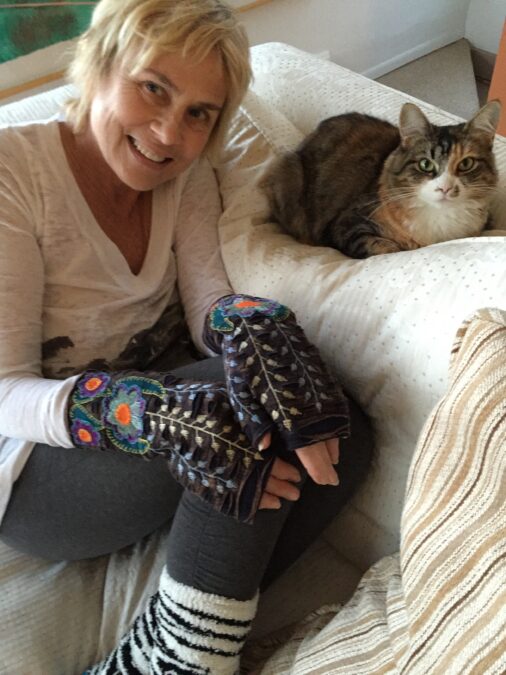My mother had a firm opinion about therapy. It was for the weak-minded. She was a member of “the bootstrap generation.” Instead of talking things through, you pulled yourself up by the bootstraps and moved on. You swallowed your feelings and kept busy. Suffering
in silence was the civilized way to go.
“Therapy is a crutch,” my mother said.
“What’s wrong with needing a crutch?” I asked her. “It’s okay to use a crutch when you have a broken leg. Why isn’t it okay when you have a broken heart? Or when your mind is racing out of control. Or when you feel confused. Therapy can help you understand yourself
better.”
“It isn’t for me,” she told me. “I just don’t find myself all that interesting.”
Greek philosopher Socrates, said, “The unexamined life is not worth living.” He created a method of self-examination where instead of providing answers for someone, he asked questions that guided them toward self-discovery and a deeper understanding of their own knowledge.
Answering questions and getting to know yourself can be an uncomfortable process. Along my own path of self-discovery,
I recognize my tendency to compare myself to other people. Do I think like they do? Do I look as good as they do? Am I as smart or as wise? She looks happier than I am. Did I make the wrong life choices? What do I do about it?
There is an Aesop’s fable called “The Raven and the Swan.” The raven envied the swan’s beautiful white feathers and graceful shape so he flew down to the lakes and marshes where the swan lived.
The raven dove into the lakes all day long and ate weeds and plants that grew in the water like the swan did. He wanted to look like her. When the swan found out that the raven was trying to copy her, she told him to return to his home in the woods and fields and be the blackbird that he was meant to be. He did as the swam suggested but it was too late. The weeds had taken a toll on the raven and he didn’t survive.
The message here is clear. Envying and trying to be like someone else is unhealthy and toxic. This is what makes cults so dangerous. The more the leader tells followers what to do, the more they stop trusting themselves and become reliant on someone who doesn’t have their best interests at heart. I’ve heard of followers allowing themselves to be branded, starved, isolated, sexually molested and in the most extremeexample, to take their own lives. When someone says, “I know you better than you know yourself,” walk away.
As a child, I was at the movies watching “The King and I,” when Anna sang, “Getting to Know You.” I got up and I danced ecstatically up and down the aisles. As an adult, I still love that song but I’ve changed the lyrics to “Getting to know me.” It might sound Narcissistic but it isn’t. We need to know who we are and what works for us so we can be comfortable in this life and be present with our friends.
Greek philosopher Aristotle said, “Understanding your own strengths, weaknesses, motivations and limitations is the foundation for developing wisdom and making good decisions.”
In my experience, there is no magical method to get to know yourself. It’s all about slowing down and watching your mind without judgment. When I left the ballet at nineteen years old, I had lived in a bubble. I went to a play one night with a friend and when it was over, she asked me if I’d like it. “Yes,” I told her.
“I didn’t,” she said.
“Actually, neither did I,” I said.
“Well did you or didn’t you?” she
asked me.
I was embarrassed. Besides Tchaikovsky and Prokofiev and Chopin, I didn’t know what kind of music I liked. I didn’t know how to dress outside of a dance studio. I didn’t know how to cook or drive a car. I knew very little about men and dating. I realized that I had some work to do. I got my first pair of jeans at twenty years old and it felt like they belonged to someone else. I overcooked the salmon and I found out that I loved the Beatles and I didn’t like heavy metal. I liked jeans and tee shirts and I didn’t like dresses and high heels. I stopped to think before I gave my opinion about anything. Life became easier because I stopped judging my feelingsand I began learning about them and accepting them.
Knowing who you are from the inside out allows you to build a life that suits you. When you take the time to be introspective and find your truth, when you discover what you can and can’t do, what you like and don’t like, you’ll be surprised to see that you are larger
and better than you ever imagined. You’ll see that knowing your weaknesses and frailties is a sign of strength.
Chinese master Lao Tzu said, “Knowing others is intelligence; knowing yourself is true wisdom.”


Recent Comments